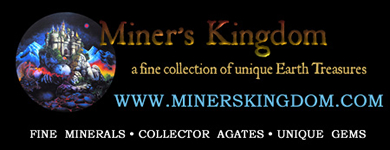![]()
Geodes, Nodules, Agates 2
![]()
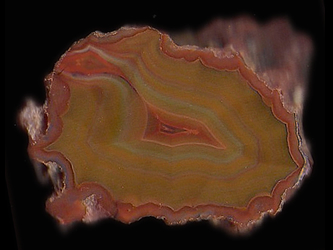
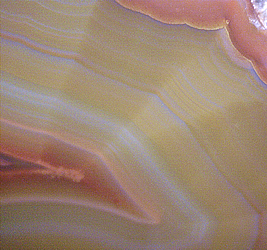
click on images for larger views
CA5-05 Agate $40 RESERVED
Valle Escondido, San Rafael Department, Mendoza, Argentina
5.3 cm x 3.5 cm x 2.8 cm
The reds and yellows in this Agate are very unusual shades, and there is even a bit of green. But the most unusual part of this Agate are the shadows. The photo on the right shows the shadows best, but the colors were reproduced better in the left-hand photo.
![]()
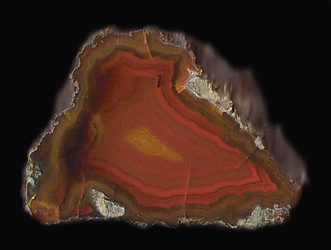
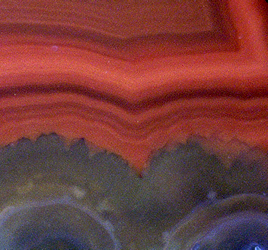
click on images for larger views
CA5-06 Agate $38
Valle Escondido, San Rafael Department, Mendoza, Argentina
5.0 cm x 3.7 cm x 4.0 cm
This Agate has the brightest red of the ones on this page. The colors on the left are the most accurate, but the photo on the right clearly shows the nice banding and complex edges.
![]()
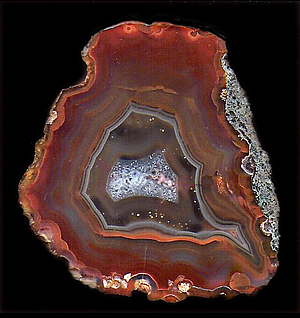
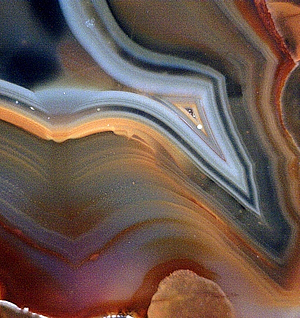
click on images for larger views
CA5-08 Agate and Quartz $45
Valle Escondido, San Rafael Department, Mendoza, Argentina
5.6 cm x 5.2 cm x 2.0 cm
A very fine Agate with a lot of different colors, small round white inclusions in the center Agate portion (visible in the left-hand photo), and a bit of crystalized Quartz in the middle.
![]()
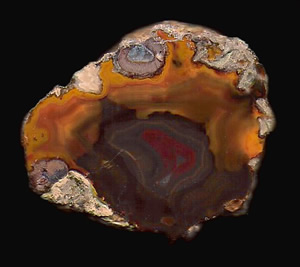
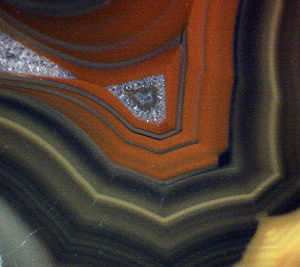
click on images for larger views
CA5-09 Agate with Quartz $25
Valle Escondido, San Rafael Department, Mendoza, Argentina
4.7 cm x 4.0 cm x 2.5 cm
The dark color in this Agate was apparently a late addition as it can be seen to cross flow lines in the right-hand photo.
![]()
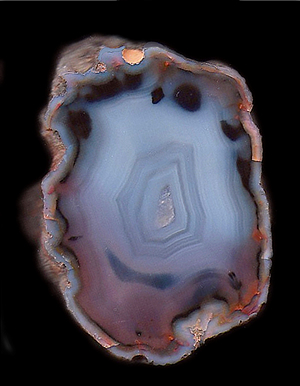
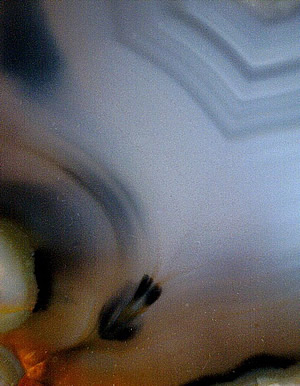
click on images for larger views
CA5-10 Agate and Quartz $45
Valle Escondido, San Rafael Department, Mendoza, Argentina
6.6 cm x 4.6 cm x 2.8 cm
This Agate is blue-gray shading to red at the bottom with large black spots and little bit of Quartz in the center. Very different from the others.
![]()
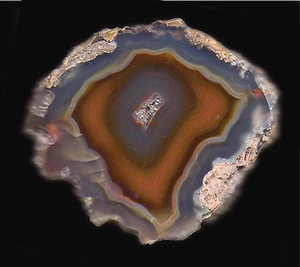
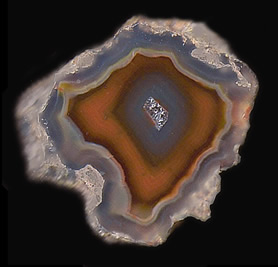
CA5-11A $28 click on images for larger views CA5-11B $32
CA5-11A & B Agate and Quartz $60 for both halves
Valle Escondido, San Rafael Department, Mendoza, Argentina
CA5-11A: 5.7 cm x 4.8 cm x 2.8 cm $32
CA5-11B: 5.5 cm x 5.2 cm x 3.0 cm $36
Transparent, colorless Agate surrounding orange-brown banded Agate, surrounding blue-gray banded Agate, surrounding a small spot of Quartz.
![]()
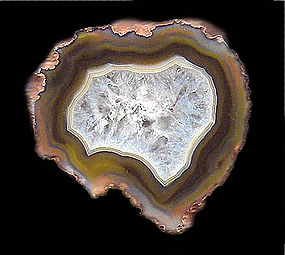
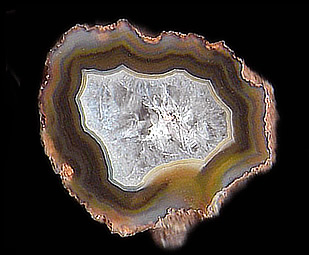
CA5-12A $32 click on images for larger views CA5-12B $28
CA5-12A & B Agate and Quartz $52 for both halves
Valle Escondido, San Rafael Department, Mendoza, Argentina
CA5-12A: 4.8 cm x 4.6 cm x 2.8 cm $30
CA5-12B: 4.9 cm x 4.4 cm x 3.4 cm $28
Nice yellow-brown banding around bright crystalized Quartz. A perfect example of classic Mendoza Agate.
![]()
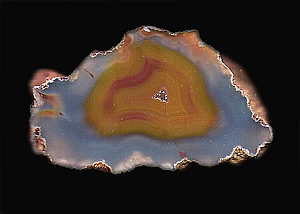
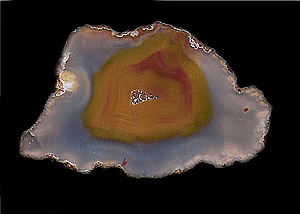
CA5-13A $26 click on images for larger views CA5-13B $24
CA5-13A & B Agate and Quartz $45 for both halves
Valle Escondido, San Rafael Department, Mendoza, Argentina
CA5-13A: 5.5 cm x 3.4 cm x 2.9 cm $26
CA5-13B: 5.5 cm x 3.4 cm x 2.9 cm $24
Blue-gray Agate around yellow-red banded Agate with a spot of crystalized Quartz in the center.
![]()
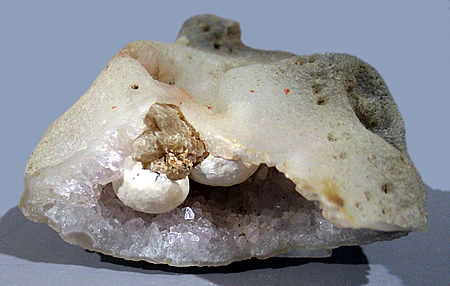
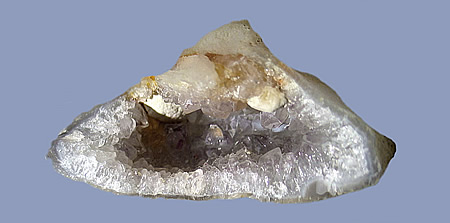
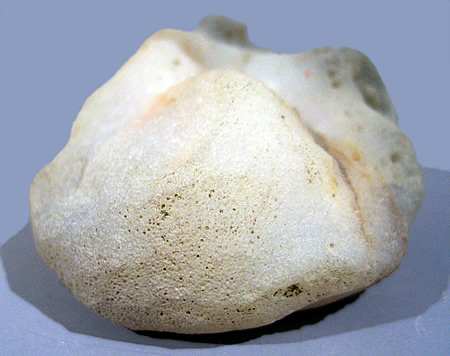
click on images for larger views
FL5-68 Botryoidal Fluorite on Amethyst in Geode $225
ex Linda St-Cyr collection
Mahodari, Nasik District, Maharashtra, India
9 cm x 7 cm x 3.5 cm
Unusual white botryoidal Fluorite (CaF2) on pale Amethyst (Quartz : SiO2). This is a complete geode; the first photo shows the largest piece with 2 balls of Fluorite, the second photo shows the smaller piece also with 2 Fluorite balls, and the third photo shows how well the pieces fit. I have only ever seen one other white botryoidal Fluorite geode for sale; it was the same size as this, but it sold at more than 3 times the price.
![]()
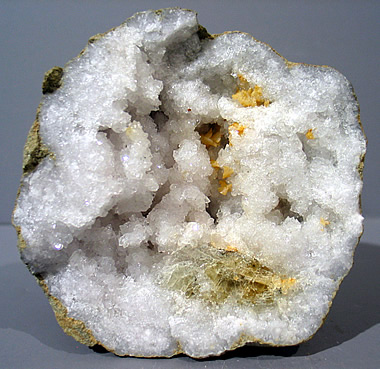
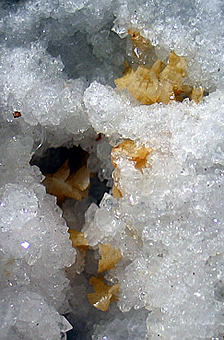
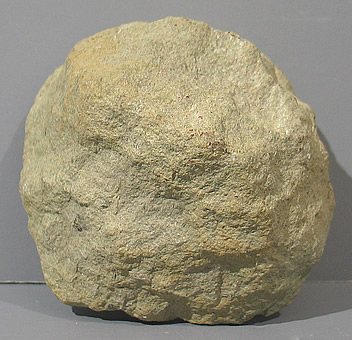
curved Dolomite crystals click on images for larger views
GEO10-04 Quartz with Dolomite and Calcite in Geode $38
ex Linda St-Cyr collection
Keokuk, Lee Co., Iowa
10 cm x 10 cm x 5.5 cm
The holes in the sedimentary rocks in which these geodes form are thought to be due to dissolved calcite or anhydrite concretions (possibly starting around dead sea creatures since some geodes look like fossils), or maybe burrows from animals and tree roots after the sediments rose above sea level. Eventually silica gels or low-temperature silica solutions enter the void and build the geode from the outside in towards the center. This is a nice large geode half with characteristically curved Dolomite crystals in the hollows and a mass of honey-colored Calcite at the lower limb. The Keokuk geodes are often filled with water when found. Other similar geodes on the Illinois side of the river can be found filled with petroleum!
![]()
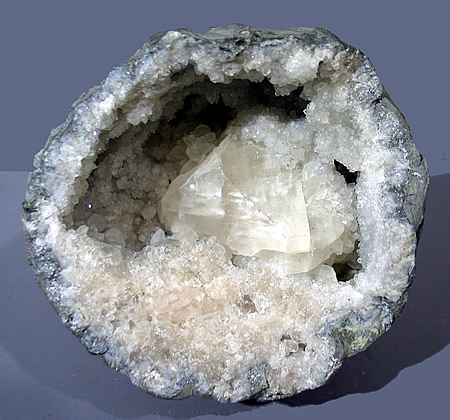
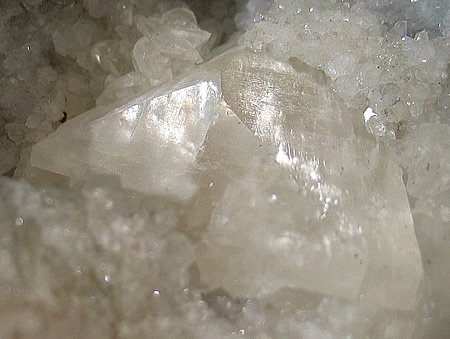
click on images for larger views
GEO10-05 Calcite Geode $42
ex Linda St-Cyr collection
Saint Francisville, Clark Co., Missouri
11 cm x 11 cm x 6.5 cm
The inside of this geode half is covered with a nice coating of Calcite crystals, with one huge crystal in the middle. The Calcites fluoresce pale pink under SWUV. The backside is missing a portion about the size of the Calcite, but it does not affect the front view. This nodule was in my geode-nodule case when it received first place 4 times at the San Diego County Fair.
![]()
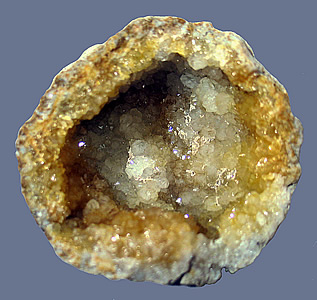
click on images for larger views
GEO10-06 Quartz in Geode ex Russell Jones $22
ex Linda St-Cyr collection
Warsaw, Hancock Co., Illinois
6.2 cm x 5.7 cm x 3.2 cm
The Des Moines River flows southeast to join the Mississippi River precisely at the Illinois town of Warsaw, making a "Y" with Warsaw on the east side of the Mississippi. Keokuk, Iowa is in the north section of the "Y" and St. Francisville, Missouri is on the west side of the "Y". Hence the Keokuk and Warsaw-type geodes have similarities, although each occurrence can have characteristic features, too, that make them distinct. This Warsaw half is filled with some colorless and some golden Quartz, and comes with a label from dealer Evan Jones.
![]()
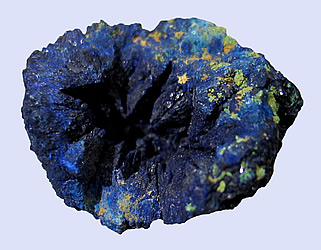
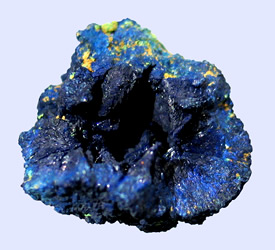
Left half, above, is 3.5 x 3.0 x 2.2 cm Right half, above, is 2.8 x 2.8 x 2.0 cm
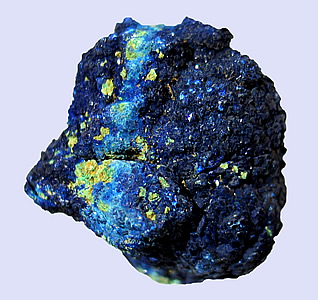
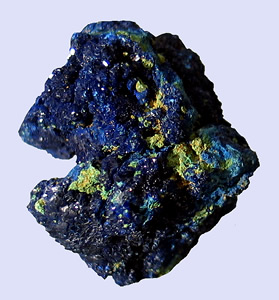
Assembled geode with both halves, two views. Click on images for larger views.
AZ9-7a & b Azurite Geode - both halves $32
ex Linda St-Cyr collection
Burra Burra Mine, Burra, North Mt Lofty Ranges, Mt Lofty Ranges, South Australia, Australia
The halves may also be purchased separately:
Left half is 3.5 cm x 3.0 cm x 2.2 cm AZ9-7a $22
Right half is 2.8 cm x 2.8 cm x 2.0 cm AZ9-7b $15
The copper mining at the Burra Burra Mine started in 1845 and was so successful that many other mines thereafter put "Burra" into their names simply to encourage investment! This is a pretty little Azurite (Cu3[OH|CO3]2) geode with a spikey interior. The two halves fit together well for 2/3 of the circumference, but on one side, there is a gap due to the opening of the geode as can be seen when the two pieces are assembled together, as in the bottom two photos.
![]()
Click on images below for larger views.
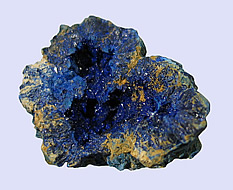
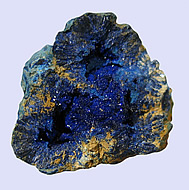
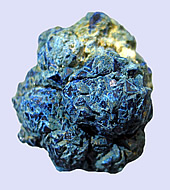
Left half is 3.1 x 2.6 x 1.7 cm Right half is 3 x 2.8 x 2.3 cm Geode is 3.4 x 3 x 2.7 cm
AZG9-1a & b Azurite Geode - both halves $58
ex Linda St-Cyr collection
Morenci Mine, Morenci, Copper Mountain District, Shannon Mts, Greenlee Co., Arizona
The halves may also be purchased separately:
Left half is 3.1 cm x 2.6 cm x 1.7 cm AZG9-1a $32
Right half is 3.0 cm x 2.8 cm x 2.3 cm AZG9-1b $32
Morenci is a classic Arizona mine which has produced Cu-Mo-Au-Ag-Pb-Zn-U-REE minerals, gemstones, Gypsum, Talc/soapstone, and Garnet. Azurite (Cu3[OH|CO3]2) is probably the most famous Morenci mineral for collectors, but the geodes are an unusual form in which to obtain it. The photo on the far right shows the two pieces assembled together and displays the interesting texture of the exterior surface.
![]()
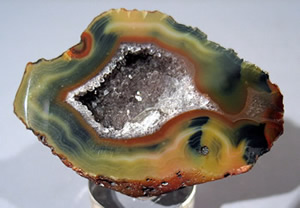
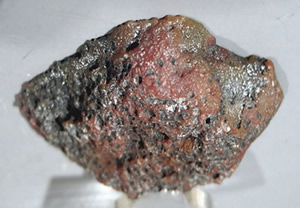
click on image for larger view
GEO10-10 Agate and Quartz Geode $32
ex Linda St-Cyr collection
Valle Escondido, San Rafael Department, Mendoza, Argentina
5.5 cm x 3.6 cm x 1.5 cm
An Argentine Agate half with rare green coloration and a contrasting interior of drusy Quartz. The pitted edges and back of Agate nodules are thought to be due to shrinkage as the Agate solidified.
![]()
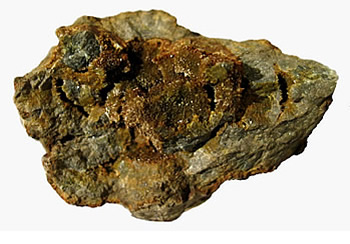
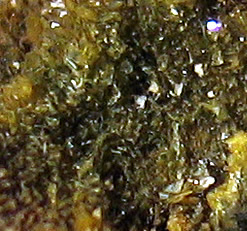
click on image for larger view
GEO10-11 Anapaite Nodule $28
ex Linda St-Cyr collection
Prats-Sampsor, Cerdanya, Lleida, Catalonia, Spain
5.7 cm x 4.0 cm x 3.5 cm
Drusy crystals of green-brown Anapaite (Ca2Fe2+[PO4]2· 4H2O) filling the inside of a Miocene clay septarian nodule. Septarian concretions contain angular cavities or cracks, called "septaria". This word comes from the Latin word septum, meaning partition. Anapaite often shows up in fossil replacements, and septarian nodules also often result from concretions around fossil cores.
![]()
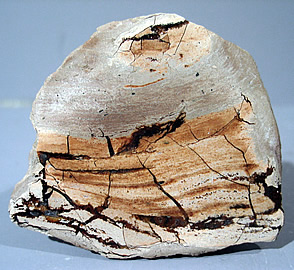
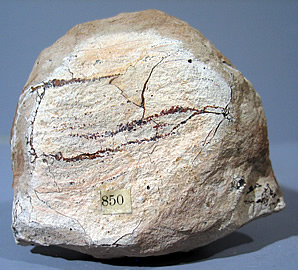
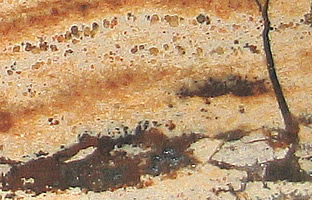
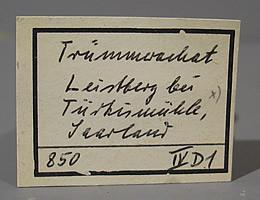
click on images in top row for larger views
GEO10-17 Agate Nodule variety Trümmesachat $35
ex collection of Dr. Winfried Böhmer of Wunstorf, Germany
ex Linda St-Cyr collection
Leistberg, near Türkismühle, Saarland, Germany
8.0 cm x 7.0 cm x 2.2 cm
This curious half-nodule of Agate is of a variety called Trümmesachat. It is from an old German collection and comes with the label.
![]()
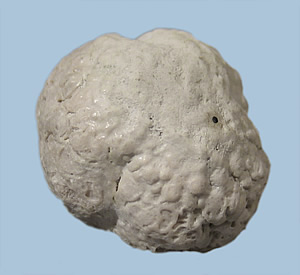
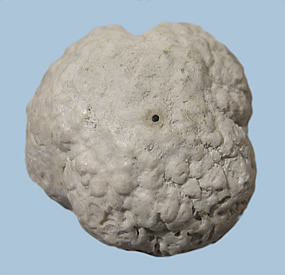
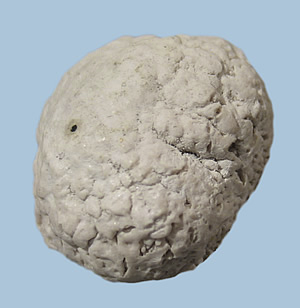
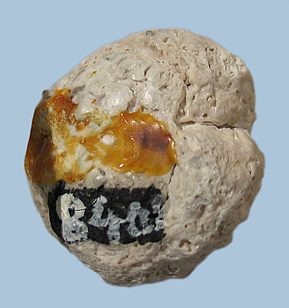
click on images for larger views
GEO10-26 Opal Nodule, variety Siliceous Sinter,
variety Geyserite, ex. Philadelphia Academy of Sciences $175
ex Linda St-Cyr collection SOLD
Yellowstone National Park, Park Co., Wyoming
2.7 cm x 2.6 cm x 2.4 cm
Siliceous Sinter is a variety of Opal formed in fumarole deposits, and Geyserite is a form of Siliceous Sinter produced by concretionary deposits due to geysers. This specimen was collected by Dr. Leidy in 1877 (5 years after Yellowstone became a National Park) and brought back to the Philadelphia Academy of Sciences for its collections. Nowadays, collecting in US National Parks is not permitted. Since six specimens resided on the single original cardboard label from the Philadelphia Academy of Sciences, this nodule comes with a photocopy of the original label.
![]()
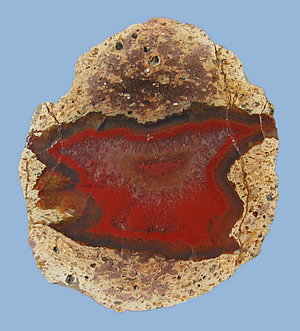
click on image for larger view
GEO10-37 Thunderegg $30
ex Linda St-Cyr collection
St Egidien, Glauchau, Saxony, Germany
5.3 cm x 4.5 cm x 2.1 cm
Thundereggs are Agates or Geodes in which the inner space forms a multi-point star-like figure, evidently due to pressure from inside. The evidence for this comes from the observation that they often have ridges bulging out on their exterior, corresponding to the points of the star. Thundereggs often have thick rinds. This one is from a very famous and classic German locality. Notice that the bands of red Agate and colorless Quartz alternate, leaving the Quartz "floating" in the middle of Agate.
![]()
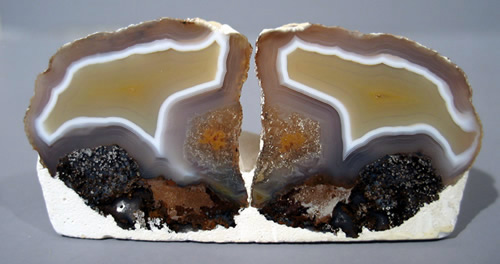
click on image for larger view
GEO10-33 Agate, pair mounted in plaster $35
ex collection of C. Gustafson of Inglewood, California
ex Linda St-Cyr collection
Moctezuma, Mun. de Moctezuma, Sonora, Mexico
7.8 cm x 3.5 cm x 1.7 cm = dimensions of the mounted pair
Subtle flow lines inside and outside of the white curves. The exterior is translucent. A very different Moctezuma than the one above.
![]()
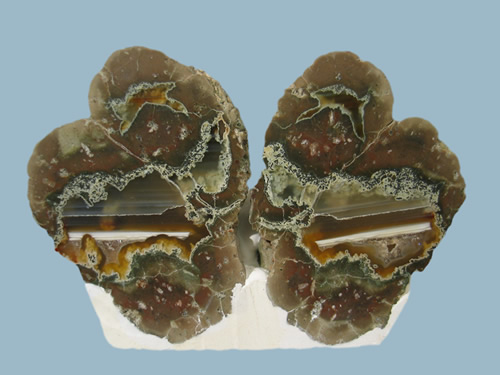
click on image for larger view
GEO10-36 Agate, pair mounted in plaster $35
ex collection of C. Gustafson of Inglewood, California
ex Linda St-Cyr collection
Ochoco District, Crook Co., Oregon
8.5 cm x 5.7 cm x 2.1 cm = dimensions of the mounted pair
Notice the horizontal bands of translucent Agate. It is thought that Agate that settles horizontally due to gravity is either more dense or is less viscous than Agate that coats cavities on all sides.
![]()
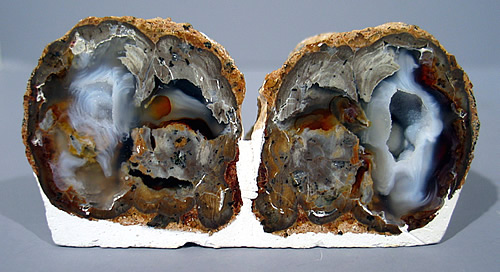
click on image for larger view
GEO10-32 Agate and Quartz, pair mounted in plaster $35 RESERVED
ex collection of C. Gustafson of Inglewood, California
ex Linda St-Cyr collection
Arizona
9.0 cm x 4.0 cm x 3.1 cm = dimensions of the mounted pair
A colorful and dynamic mixture of Agate and Quartz vug - it reminds me of a weather map with hurricanes and pressure fronts!
![]()
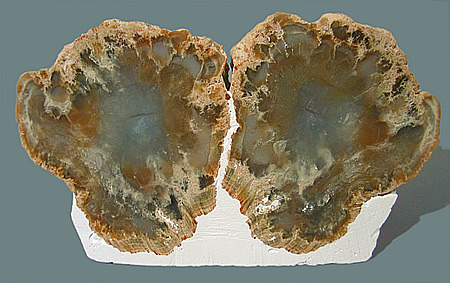
click on image for larger view
GEO10-35 Agate, pair mounted in plaster $30
ex collection of C. Gustafson of Inglewood, California
ex Linda St-Cyr collection
locality unknown
10 cm x 5.7 cm x 3.0 cm = dimensions of the mounted pair
A very attractive pair of Agates, beautifully mounted in plaster.
![]()
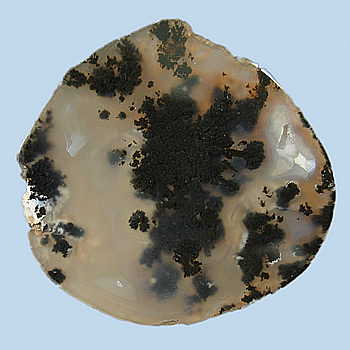
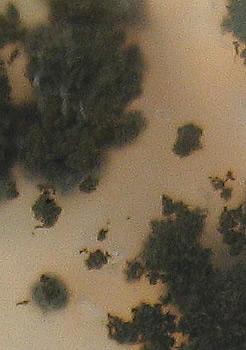
regular light click on left image for larger view regular light
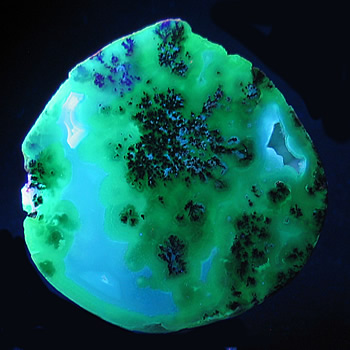
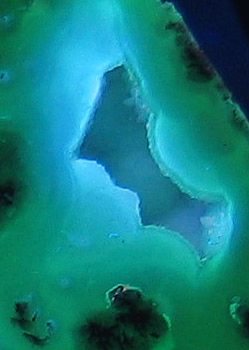
SWUV click on left image for larger view SWUV
GEO10-29 Agate variety "Marfa Plume Agate" $75
ex Linda St-Cyr collection
South of Marfa, Presidio Co., Texas
6.7 cm x 6.5 cm x 0.9 cm
This Agate half-nodule is fairly thin, giving it good translucency. It is especially attractive when back-lit, and the plumes are distinctly dark brown. Under SWUV, portions fluoresce green. What appears to be fluorescing blue, however, actually looks white under SWUV.
![]()
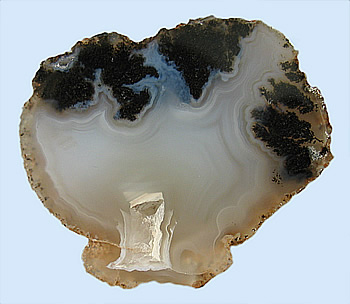
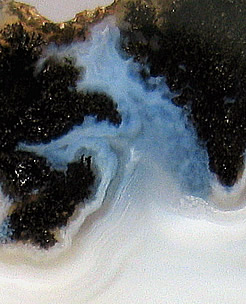
regular light click on left image for larger view regular light
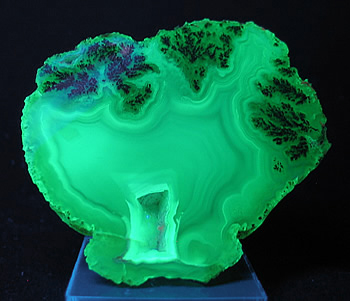
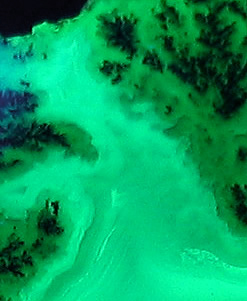
SWUV click on left image for larger view SWUV
GEO10-30 Agate variety "Marfa Plume Agate" $85
ex Linda St-Cyr collection
South of Marfa, Presidio Co., Texas
6.5 cm x 5.7 cm x 4.1 cm
This Agate half-nodule displays some of the blue color that is the most prized for this location. It is also incredibly fluorescent in SWUV. The feature near the base is a small angular void that shows up most clearly in the SWUV photo at lower left.
![]()
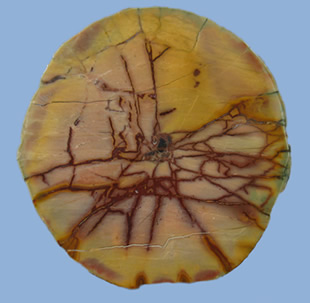
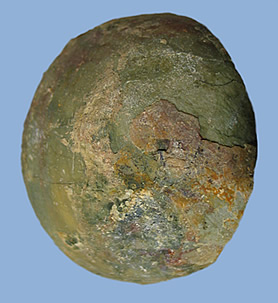
click on images for larger views
GEO10-39 Rhyolite Nodule $18
ex Linda St-Cyr collection
Madagascar
6.5 cm x 6.3 cm x 2.3 cm
This nodule appears to be pure Rhyolite, which has altered to a green color on the exterior. Also some solutions, probably iron-rich, have permeated the yellow interior with dark brown lines.
![]()
If you like Agates, you should also check out the Laguna Agates and the fluorescent Agates from Canyon Falls, Arizona (a new location) that our friends Al, Mary & Erik Rose are offering:
or select a gallery from the table below:
![]()
Questions? Please send me an email.
Home | Mineral Galleries | Index of Minerals | Contact | Links | Orders
© 2007-2010 Middle Earth Minerals

